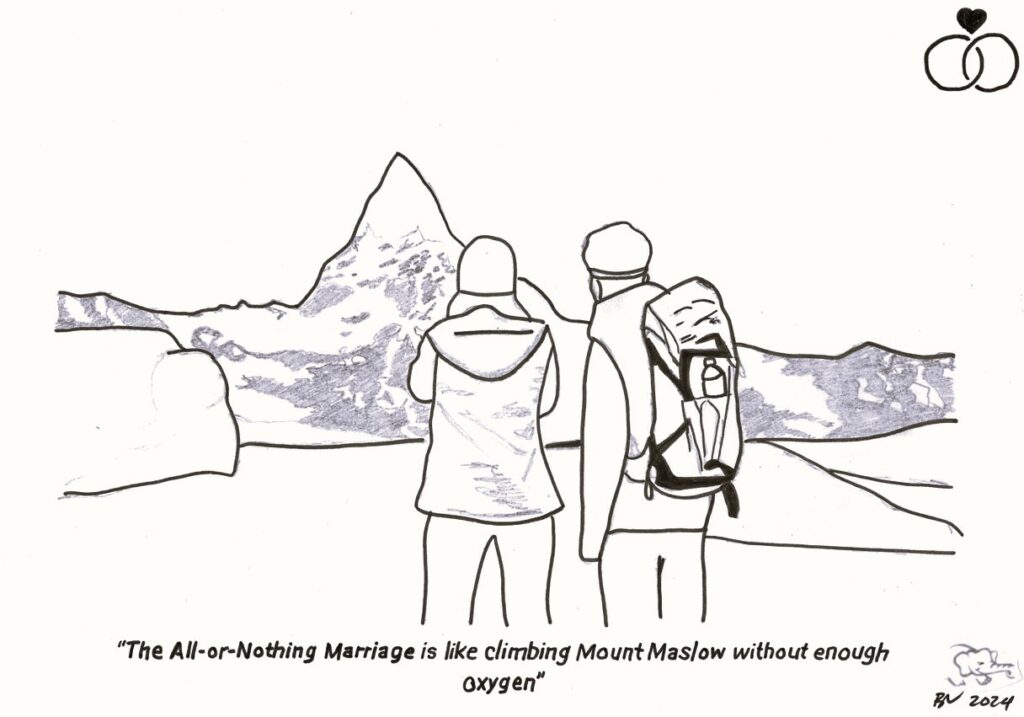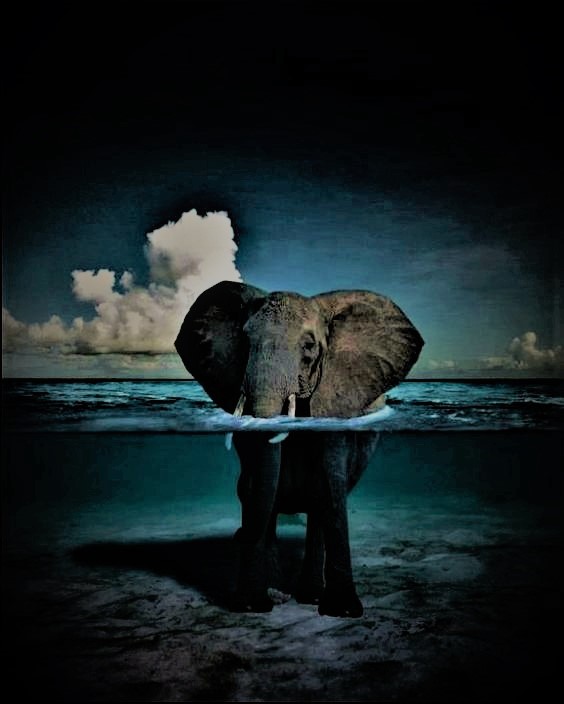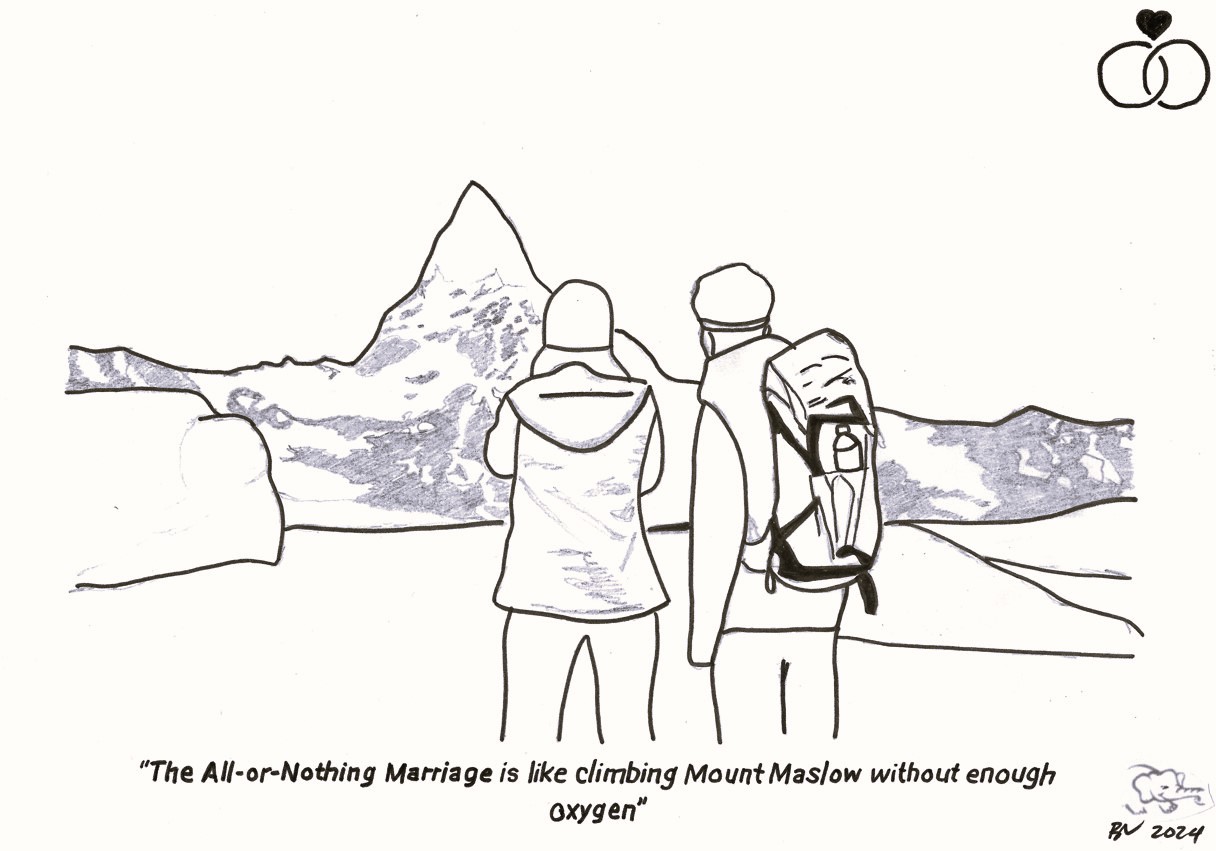"Contemporary Americans are asking their marriage to help them fulfill different sets of goals than in the past. In the past, they asked their marriage to help them fulfill their psychological and safety needs. Now, they ask their marriages to fulfill their esteem and self-actualization needs, and they do so without sufficient investment of time, psychological resources, or "oxygen."
--- Eli J. Finkel (2017)

On average, we as a society are investing less time in our marriages than in the past. As a result, mean levels of marital well-being is declining over time. Spouses are struggling with what they are asking from their marriage and what they are investing in it.
In his 2017 book, The All-or-Nothing Marriage, Eli J. Finkel investigates how the dynamics and expectations on marriage in America have changed since roughly the colonial times. These changes mirror Abraham Maslow’s hierarchy of needs, as American marriages transitioned from the fulfillment of lower needs, to higher needs like self-actualization.
Success at these higher altitudes require a significant level of investment in time and energy … One that not every participant in modern marriages has willingly made or adapted to.
In short, modern marriages are tougher than they have historically been given that economic progress and industrialization have made it easier to live alone, especially when compared to colonial times of the 1700s. And in short, this fact has made us require/request more from our marriages leading to a very large expectations gap that Finkel calls the All-or-Nothing Marriage.
Downloadable Content – Raw Notes
Interested in diving deeper into Eli J. Finkel’s work on The All-or-Nothing Marriage? Download my unfiltered notes below ?

